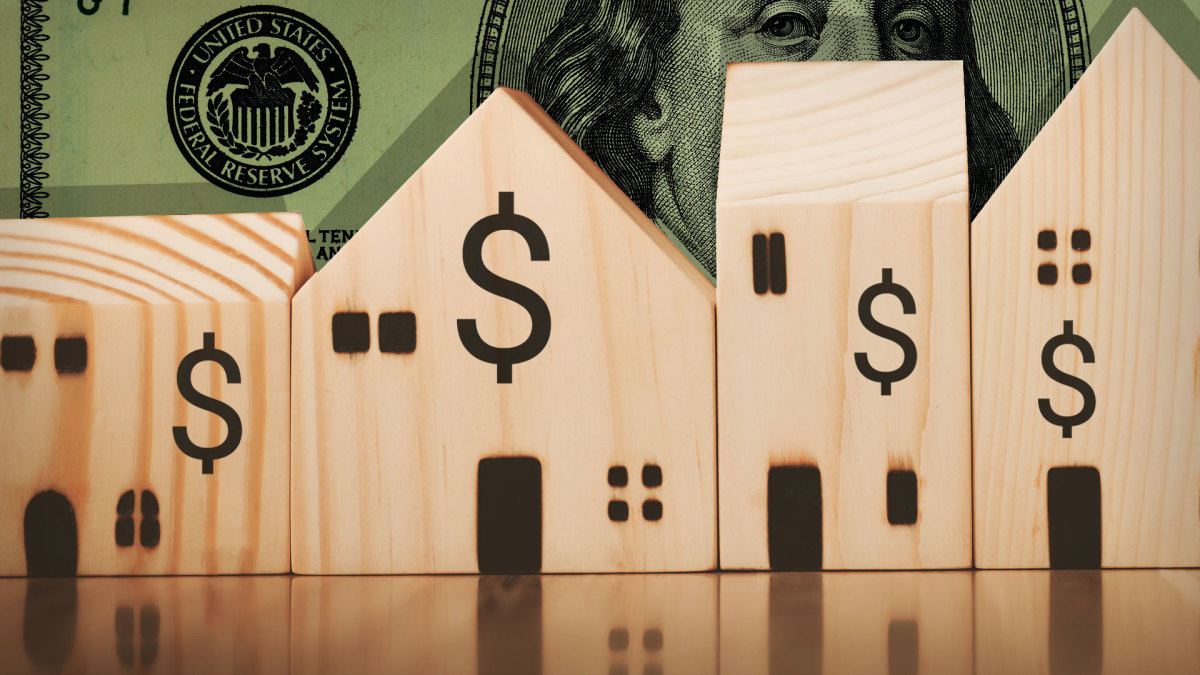
Twice this week, government reports did not show inflation falling as many had expected.
In fact, inflation pressures were stronger than expected. There was an immediate effect on mortgage rates: Up.
And rates will keep rising until the Federal Reserve starts cutting interest rates.
Worse, those cuts may get pushed back, even if the Fed has said it expects to cut interest rates this year.
So, if you're buying a home, time is on your side.
If you're selling, the longer the Fed waits to cut, the more worried you may get.

Shutterstock/TS
How the mortgage market has reacted
Interest rates fell rapidly after the Fed's November meeting when Chairman Jerome Powell all but said a rate cut was a certainty.
The Fed's base rate, the Federal Funds rate, is 5.25% to 5.5%, following the steepest rate increases since Paul Volcker fought inflation in the 1980s.
Investors and would-be homebuyers rejoiced.
Related: Veteran analyst unveils bold interest rate prediction
The S&P 500 jumped nearly 23% between Oct. 26, 2023 and Feb. 15. The rate on a 30-year mortgage was 7.8% in October; however, in the hope that inflation might be licked, allowing rates to fall, it declined to about 6.6% at the end of the year.
A housing market that was mostly stagnant in 2023, except for home builders who could afford to put up the cash to trim buyers' payments to close a sale (known as a buydown), started to stir for the first time since the Fed began boosting rates in early 2022 to tame inflation.
That led to hopes for a buoyant spring-buying season that unofficially starts in mid-February.
But this week brought two inflation reports that startled Wall Street and bond markets, tossing water on optimism.
The Consumer Price Index rose 0.3% for January, an annualized 3.0% rate, the Labor Department reported on Tuesday. Investors had been on a 0.2% increase. The surprise set off a huge stock market selloff on that day and sent bond yields higher.
The 10-year Treasury yield jumped to as high as 4.33%. That's bad because those yields are a key determinant of mortgage rates.
Basically, find the 10-year yield and add 2.5 to 3 percentage points to get a reasonable estimate of what a 30-year mortgage will cost.
On Friday, the Labor Department shocked markets again when it reported the producer price index (PPI)- a measure of prices paid to manufacturers- rose 0.3%. Wall Street expected 0.1%.
Again, the 10-year note yield rose, this time to 4.28%, and the 30-year mortgage rate hit about 7.2%.
For a home buyer, that mortgage rate bump means a monthly payment on a $400,000 mortgage might jump from $2,555 a month to $2,715, an increase of 6.2%.
And that's BEFORE property taxes and insurance.
Rate cuts will be coming... later
When will the Fed finally start cutting rates? For this, we start with the CME Group's FedWatch Tool. The tool, built around market assumptions for future rates, had guessed the first cut might be in March.
More Economy:
- Fed members just hat-tipped what's next for interest rates
- Retail sales tumble clouds impact of inflation data
- Jobs report shocker: 353,000 hires crush forecasts, stokes inflation fears
Many economists and traders were deeply skeptical that the Fed would move that fast. After the inflation reports, the tool now thinks the first cut is in June.
Maybe not. Raphael Bostic, president of the Federal Reserve Bank of Atlanta, thinks the first cut will come during the summer. His body language during a CNBC interview suggested mid-to-late summer at best.
Revamped assumptions suggest mortgage rates stay higher for longer.
There was one other effect of the inflation news.
Stocks tumbled Friday for the third time in five days. The iShares U.S. Home Construction ETF (ITB) fell 1.8%. Big builders like Pulte Group (PHM) , D.R. Horton (DHI) , and Lennar LEN fell nearly 3%.
Why won't the Fed move faster?
Fed Chairman Powell and all the people in its rate-setting body really want to see inflation coming down to 2% on a sustained basis after inflation jumped nearly to 9% in 2022. For them, 3% doesn't count.
Former Treasury Secretary Larry Summer actually thinks persistent inflation means a rate hike might come before a rate cut. If so, mortgage rates may not be done rising.
But Mark Zandi, chief economist of Moody's Analytics, thinks the Fed should start cutting sooner. The economy just isn't that strong, he argued in a CNBC interview.
Related: Veteran fund manager picks favorite stocks for 2024







